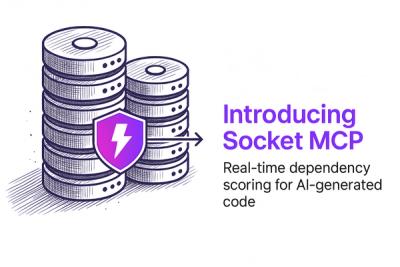
Product
Secure Your AI-Generated Code with Socket MCP
Socket MCP brings real-time security checks to AI-generated code, helping developers catch risky dependencies before they enter the codebase.
github.com/glesys/glesys-go
This is the official client library for interacting with the GleSYS API.
go get github.com/glesys/glesys-go
To use the glesys-go library you need a GleSYS Cloud account and a valid API key. You can sign up for an account at https://glesys.com/signup. After signing up visit https://cloud.glesys.com to create an API key for your Project.
client := glesys.NewClient("CL12345", "your-api-key", "my-application/0.0.1")
// Create a Server
server, err := client.Servers.Create(context.Background(), glesys.CreateServerParams{Password: "..."}.WithDefaults())
// List all Servers
servers, err := client.Servers.List(context.Background())
To be able to monitor usage and help track down issues, we encourage you to
provide a user agent string identifying your application or library. Recommended
syntax is my-library/version or www.example.com.
glesys-go uses Go's context library to handle
timeouts and deadlines. All functions making HTTP requests requires a context
argument.
Full documentation is available at https://godoc.org/github.com/glesys/glesys-go.
Please use the formatting provided by gofmt.
The contents of this repository are distributed under the MIT license, see LICENSE.
FAQs
Unknown package
Did you know?

Socket for GitHub automatically highlights issues in each pull request and monitors the health of all your open source dependencies. Discover the contents of your packages and block harmful activity before you install or update your dependencies.

Product
Socket MCP brings real-time security checks to AI-generated code, helping developers catch risky dependencies before they enter the codebase.

Security News
As vulnerability data bottlenecks grow, the federal government is formally investigating NIST’s handling of the National Vulnerability Database.

Research
Security News
Socket’s Threat Research Team has uncovered 60 npm packages using post-install scripts to silently exfiltrate hostnames, IP addresses, DNS servers, and user directories to a Discord-controlled endpoint.